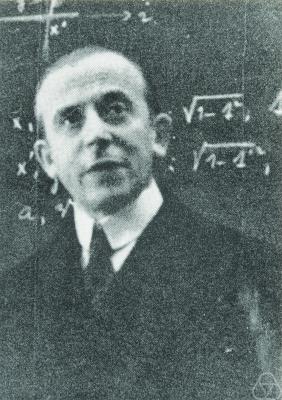Second Lecture, The Elements of the Theory of Probability, p. 30
Probability, Statistics And Truth - Second Revised English Edition - (1957)
Richard von Mises: Frasi in inglese
First Lecture, The Definition of Probability, p. 18
Probability, Statistics And Truth - Second Revised English Edition - (1957)
First Lecture, The Definition of Probability, p. 26
Probability, Statistics And Truth - Second Revised English Edition - (1957)
Sixth Lecture, Statistical Problems in Physics, p. 220
Probability, Statistics And Truth - Second Revised English Edition - (1957)
Third Lecture, Critical Discussion of the Foundations of Probability, p. 80
Probability, Statistics And Truth - Second Revised English Edition - (1957)
Second Lecture, The Elements of the Theory of Probability, p. 35 (See also: probability space)
Probability, Statistics And Truth - Second Revised English Edition - (1957)
“No contradiction exists, if the events are correctly interpreted.”
Fifth Lecture, Applications in Statistics and the Theory of Errors, p. 142
Probability, Statistics And Truth - Second Revised English Edition - (1957)
Second Lecture, The Elements of the Theory of Probability, p. 32
Probability, Statistics And Truth - Second Revised English Edition - (1957)
Sixth Lecture, Statistical Problems in Physics, p. 212
Probability, Statistics And Truth - Second Revised English Edition - (1957)
First Lecture, The Definition of Probability, p. 10
Probability, Statistics And Truth - Second Revised English Edition - (1957)
Third Lecture, Critical Discussion of the Foundations of Probability, p. 81
Probability, Statistics And Truth - Second Revised English Edition - (1957)
Sixth Lecture, Statistical Problems in Physics, p. 187
Probability, Statistics And Truth - Second Revised English Edition - (1957)
Fifth Lecture, Applications in Statistics and the Theory of Errors, p. 159
Probability, Statistics And Truth - Second Revised English Edition - (1957)
Fifth Lecture, Applications in Statistics and the Theory of Errors, p. 166
Probability, Statistics And Truth - Second Revised English Edition - (1957)
Second Lecture, The Elements of the Theory of Probability, p. 38
Probability, Statistics And Truth - Second Revised English Edition - (1957)
“The theory of probability can never lead to a definite statement concerning a single event.”
Second Lecture, The Elements of the Theory of Probability, p. 33
Probability, Statistics And Truth - Second Revised English Edition - (1957)
Fifth Lecture, Applications in Statistics and the Theory of Errors, p. 141
Probability, Statistics And Truth - Second Revised English Edition - (1957)
Third Lecture, Critical Discussion of the Foundations of Probability, p. 94-95
Probability, Statistics And Truth - Second Revised English Edition - (1957)
First Lecture, The Definition of Probability, p. 8
Probability, Statistics And Truth - Second Revised English Edition - (1957)
Third Lecture, Critical Discussion of the Foundations of Probability, p. 74
Probability, Statistics And Truth - Second Revised English Edition - (1957)
